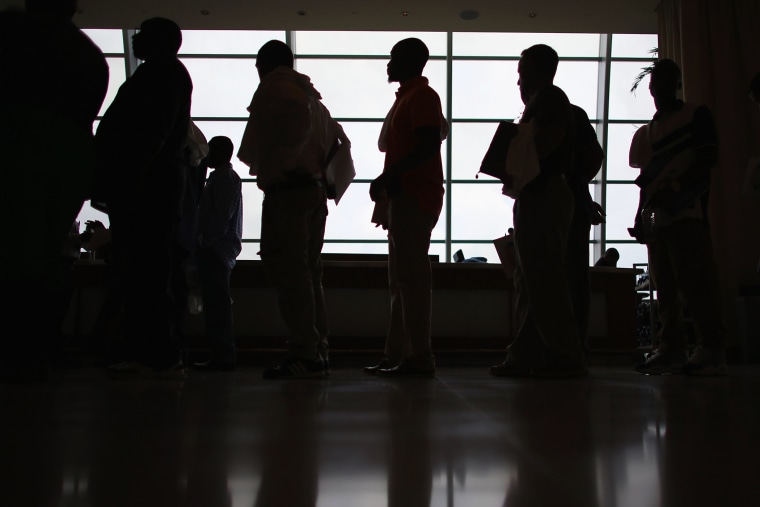Over the last year, events from Ferguson, Missouri to Baltimore to Charleston, South Carolina have combined to open a wide-ranging conversation about ongoing systemic racism and racial inequality, including economic inequality. Now, a worrying new report suggests that the Great Recession that followed the 2008 financial crisis could have made the problem worse—well into the future.
The report, released Tuesday by the Social Science Research Council and the American Civil Liberties Union, looks at the divergent impact on black and white households of the recession and its aftermath, finding that white households recovered at a far faster rate than did black ones.
The report’s authors call that an “ominous sign” for the future, because it will make it harder for black families to pass on wealth to their kids, or to take other steps to support them like paying for college or helping them buy a home, perpetuating the racial wealth into future generations.
Related: Racial and economic justice: Perfect pairing?
“Unequal opportunity to rebuild wealth coming out of the crisis is leading to widening racial disparities,” the report’s authors conclude. “The racial wealth gap, in other words, is now on track to compound over time.”
By 2031, the report projects, black wealth will be down by 40% —almost $98,000 for an average household—compared to where it would have been had the Great Recession not occurred. For white households, the figure is 31%.
The report also finds that until the recession, the racial wealth gap was narrowing slightly. Had it not occurred, average white wealth would have been four times that of average black wealth by 2031—still a big imbalance, but moving in a more equal direction. But thanks to the downturn, white wealth will instead be 4.5 times that of black wealth.
Why did white households recover from the downturn better than black ones? In part, the report finds, because home equity represented a greater share of black households’ total wealth than white ones. So when home values dropped, blacks on average had fewer other sources of wealth to fall back on. But blacks also were hit harder because, as plenty of other evidence has shown, the housing bust that sparked the recession was itself caused in part by predatory and discriminatory lending practices.
What can be done? The report’s authors want more aggressive efforts by regulators to stamp out discriminatory mortgage-servicing practices, and to ensure equal access to credit.
Related: Economic recovery? Not for Ferguson or black America
"Not only were black homeowners devastated by the housing market collapse, they are now being left behind. It is very much a tale of two recoveries," said Rachel Goodman, staff attorney with the ACLU's Racial Justice Program.
The report comes as the Supreme Court is poised to release a decision in a case that could significantly narrow the scope of the Fair Housing Act (FHA), the most important federal law barring racial discrimination in housing. If the court rules that the FHA bars only intentional discrimination, not actions which have discriminatory effects, it would make it much easier for lenders to continue to target black families for predatory loans, and for realtors to make it harder for blacks to buy homes in better neighborhoods.
